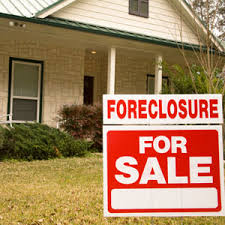Challenging a Foreclosure in Massachusetts
A recent decision by the Massachusetts Land Court discusses the importance of properly challenging a foreclosure in Massachusetts, and the ramifications of failing to do so correctly. This case, Kenney v. Brown, is to the best of my knowledge the first decision to interpret Massachusetts’s foreclosure title clearing law, a 2015 law that puts a deadline upon the right of homeowners to challenge a foreclosure in Massachusetts.
Overview of the Deadline for Challenging a Foreclosure in Massachusetts
Massachusetts’s foreclosure title clearing law places a deadline for challenging a foreclosure in Massachusetts. This law requires a homeowner to raise a challenge to a foreclosure within three years after a foreclosure affidavit is recorded in the land records where the property is located (this affidavit is generally recorded several months after the foreclosure sale).
How to Preserve A Foreclosure Challenge
Under this law, a homeowner must challenge a foreclosure by either filing a lawsuit or raising a defense or counterclaim in a post-foreclosure eviction case. Simply put, challenging a foreclosure under this new law requires a homeowner to pursue their claim in court.
In Kenney, the homeowners attempted to preserve their challenge to the foreclosure against their home by filing an affidavit in the land records, and pursuing this challenge in court later on. This affidavit was filed pursuant to G.L. c. 183, § 5B:
Subject to section 15 of chapter 184, an affidavit made by a person claiming to have personal knowledge of the facts therein stated and containing a certificate by an attorney at law that the facts stated in the affidavit are relevant to the title to certain land and will be of benefit and assistance in clarifying the chain of title may be filed for record and shall be recorded in the registry of deeds where the land or any part thereof lies.
These affidavits, commonly known as “5B affidavits” can be useful for resolving property matters. I have used them in opposing a foreclosure by entry or recording judicial decisions regarding the validity of a foreclosure. Here, these homeowners attempted to preserve their foreclosure challenge by filing one of these affidavits, and listing the reasons why they believed their foreclosure was unlawful. These homeowners, undisputedly, did not file a lawsuit within the deadline of the title clearing law. The question for the court was whether such an affidavit was a proper means for challenging a foreclosure in Massachusetts under the title clearing law’s deadline.
The court in Kenney v. Brown rejected the homeowner’s use of 5B affidavits for this purpose, by holding that the law requires an actual court case to preserve a foreclosure challenge, which may not be done by merely filing an affidavit. Failure to do so will prevent a homeowner from being able to pursue such a claim, even if the underlining foreclosure was unlawful.
Critical Advice for Homeowners Who Want to Challenge a Wrongful Foreclosure
The lesson from this case is an important one: speak to an experienced foreclosure defense attorney if you have a potential challenge to a wrongful foreclosure. The failure to comply with the laws applicable for such a claim can cost you “your day in court” on these matters.

